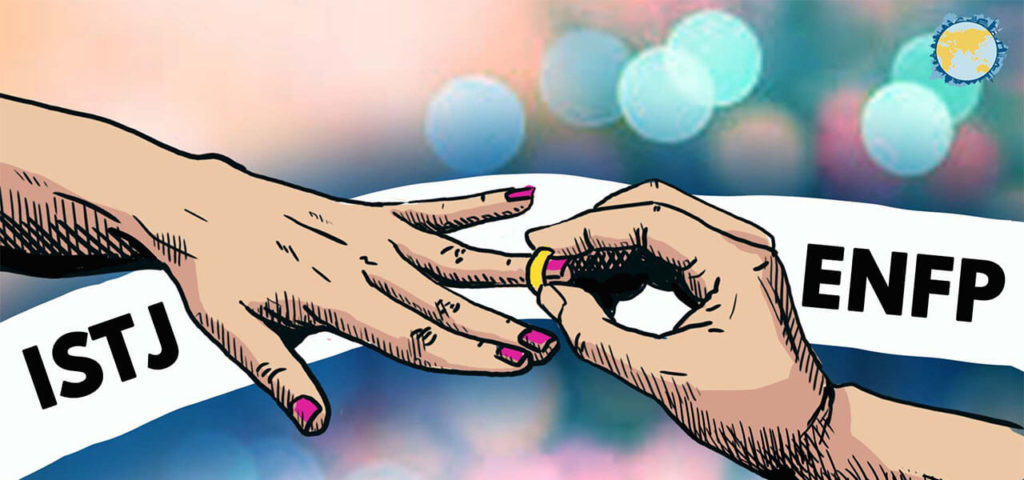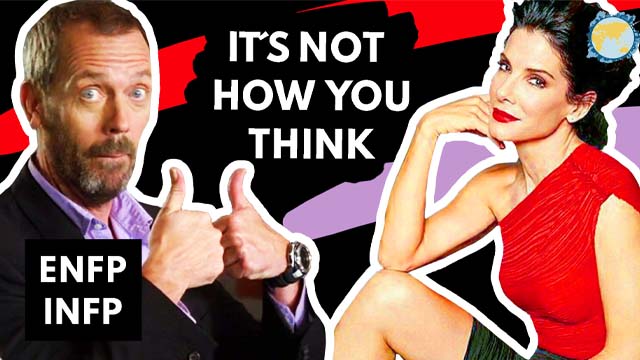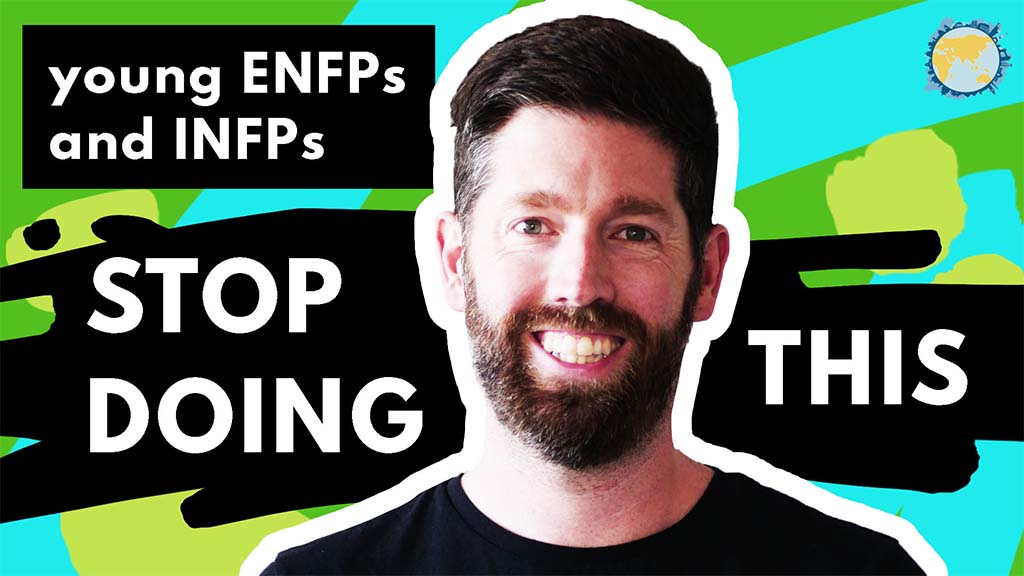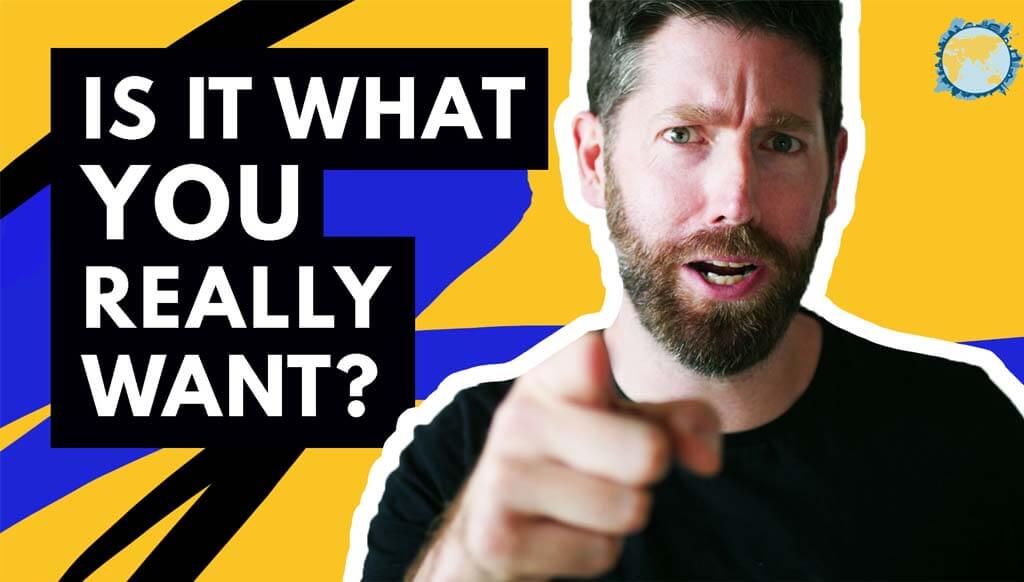Can Your MBTI Personality Type Change? Let’s ask Erik Thor! (pt.2)
Here is the second part of the interview with Erik Thor.
If you prefer reading, here is a video transcription made with Otter.ai
Dan Johnston: That’s a big thing. I had a coaching client many years ago, who told me, you know, he was an ENFP, and our coaching wasn’t related to personality at all, it was more business coaching, but he was saying he was a ENFP, and then he went through this transformation with some self help stuff, and now he is an INTJ and clearly wasn’t, I didn’t take up that argument too much, because it didn’t necessarily, you know, serve him in our point but that would be the extreme of someone’s belief in it and… But you hear this a lot and some of it is miss testing, and some of it is whatever else I don’t know…
What are your thoughts on personality changing?
Erik Thor: Well, the reason I think while people change their type system is that they struggle with anxiety, and self-doubt, and just general insecurities about who they are, and sense of feeling lost or uncertain about just who you are, your identity, your lifestyle, what you want men to do with life and all those things. So that’s the primary issue. And you hope that by settling your personality type, you’re going to figure out all the other things and so you’re kind of eager to find something that will fit and that will help you give direction to your life, and that will help you put things in place.
So the general issue is, yeah, as long as you feel unsafe or unsure about yourself, you’re gonna keep changing type. So maybe you’re gonna say I’m an INTJ, you’re gonna try to set your mind to, but that anxiety is going to come back. So you’re going to try to fit into that lifestyle and try to be that type and then you’re going to feel like: “Now I’m not sure, maybe it’s not thriving, maybe I’m missing something…” and you’ll go on to another type. So you have to really deal with the root cause, which is just anxiety and often lack of boundaries.
Dan Johnston: So to clarify what you’re saying, people’s type isn’t changing, but they might test a bit differently and then in their head, they say – Oh, cool. If I was a 25-year-old me and tested as an INTJ, I’d be like, hell, yes, I’m an INTJ, I do not want this to change, I am disciplined, I am a hard ass, I can get things done. So it’s sort of like that, like people will test differently, because their answers are all over the map. And then they will try to embrace the type they wish they were, or that sounds really good, you know, in the description, or whatever.
Erik Thor: Yeah, you’re not changing type, you’re simply trying to change your perception of yourself. So you have a personality type who you are in flow, and you can find out who you are, and you can find your true type. But you just have to start learning to recognize boundaries and boundaries between different personality traits and ways of living and lifestyles and relationships and so on. So you gonna have to learn to develop a stronger inner voice, like a sense of, I like this, and I don’t like that, I need this. And I don’t need that the sense of I’m good at this. I’m not good at that. So you’re gonna have to work from the bottom without often you have to start in the bottom, like, what am I really good at? And what do I read in the class myself in anyone can relate to something in a short term glance, like, Oh, yeah, sure, that could be maybe fun. But would you enjoy doing that long term? Or would you feel really good about that if you dedicated your life to it?
Dan Johnston: That’s a really good point. Because it’s, I know this happens a lot with ENFP as we can get really excited about something we’ll read a book about the discipline that’s not written for our type and then get really excited like Yes, I’m gonna follow this, “getting things done” system, for example, and, and we can be enthusiastic and you can force it for a few weeks, maybe up to a few months, if you’re really really you know, motivated by a goal and forcing it. But it’s not going to work out in the long run. And you’re my whole thing is you’re much better developing your life designing your life around your personality and other things, your values, what you want the lifestyle you want, and then trying to fit yourself somewhere else. Now you still want to grow and develop But you want to grow and develop in line with who you are like your natural progression, not try to fit yourself into some other box.
Erik Thor: Yeah, you were saying something earlier about INTJs. And I thought it was interesting because I think people are struggling, especially with an idea of who they are versus who they should be. Because in today’s society, there’s such a strong idea of what the ideal person should be like, and how they should act and what kind of what success says and what the healthy relationship is, what a good parent this and those things can make it very confusing, because hey, if and in the, if the ideal parent is like an ISFJ, then an ENTP is going to have a really difficult time fitting into that role and dealing with that and thinking, Oh, I have to be like that.
And I have to not say this, and I have to act like this and be neat and proper, and so on. But that’s not me. So the problem is, we can get so lost in our shoots, like, before I discovered MBTI. I was so set to the idea that I was going to be a successful politician and out on the barricades, holding passionate speeches about things and rallying everybody behind them a sense of vision and a sense of the idea. That was very INFJ-like, really, by acting like that and putting myself in that spot that was constantly pushing my own boundaries too far and causing myself to face massive anxiety issues and fears and insecurities, because I was not built for doing that, and I didn’t enjoy doing yet.
So any person who is put in the position of being a business owner or CEO, is going to have to deal with the kind of the match Machiavellian archetype in the shadows, because that’s kind of where Machiavelli or that kind of ideas moved in today’s society, it’s less in politicians, even though they can be in politicians as well. But now today, it’s more in business owner, because you are trained to be kind of ruthless and to look at finances and investments and prospects and money above anything else, that’s what you are there to do. Your shareholders are going to expect you to deliver profit to them. And if you’re not doing that, you’re not gonna be he but matter, but put in that position that people are gonna ask you, where’s the profit? Where’s the money? And what’s what’s the benefit? What’s in it for me?
Can your MBTI personality type change?
Dan Johnston: Definitely, definitely. So with people who are really unsure of their type, or they think it’s changing, is the takeaway aside from working to clarify their type, and you’ve got a great test on your site to do that as well, we’ll make sure to include all that. But is it essential to just be aware that the test I think that the standardized MBTI test, they test your behavior, not what’s behind it, so that you know, they ask questions like right now, I think we all introverts, like do you prefer to stay home or go out to a party Well, Coronavirus in Spain? I prefer to stay home right now. So I guess I’m an introvert. Is that? Is that what that means? Right?
Erik Thor: Yeah, that’s the problem with behavioral oriented personality tests and that includes like the scientifically supported Big Five, for example, the big five I’m not saying not scientifically They verified and it doesn’t have good statistics to back it up. The problem is, it’s focusing purely on behavior. So it cannot understand people’s values or inner convictions or reasoning or thought process. So the big five says nothing about those things.
And many tests like the 16 personalities test, for example, it’s the same, don’t it says something about your current behavior and your lifestyle at the moment, it doesn’t say anything about who you really are, or your motivations behind why you live that way, and maybe show some to activate. There’s my personality does develop the goal of diastema share, of course, the cognitive functions and the thought processes that people have. So the questions I asked are about cognitive functions, they’re not about the introversion or extroversion, because there is no true introvert there is no true extrovert. Anybody can be introverted in this specific situation, but about measuring for introverted intuition or introverted feeling, or Extraverted Intuition for that matter, and helping people see the thought process behind it.
Dan Johnston: Have you ever come across the Colby test? It’s a test used, I think primarily by entrepreneurs, it’s not that widely known. It’s like in a smaller circle that uses it, but it tests. It’s a paid test, I think it’s 50 bucks. And it tests what you naturally do. So in terms of what you’ll be motivated to do. So for instance, one of the things looks at, are you a quick start, you’re just like, boom, I think of something I want to do it right away, clearly myself. And the other side is I need to really think things through have a plan before I start. And it’s used a lot for team building. So a lot of entrepreneurs, that’s how I heard about it from other entrepreneurs, I know. And what’s interesting about it, the reason I brought it up is that I’ve had people take it, and then it gives them back and no result.
So it will say basically, either you’re not answering truthfully, or you’re at a stage in your life, or your head isn’t straight. And so we can’t give you a result. And having paid $50 for this person to take it. It’s very annoying, and I kind of stopped giving it to people that I work with as often. But that does make sense. Like for a test to always give you back a definitive answer is ridiculous. Like, if you take 16 personalities, calm no matter what you answer, it’s going to give you something. Yeah. And now granted, you get percentages. So you can sort of think okay, well, maybe that’s not sure that’s never explained to you. And yeah, so I like that as a thought of like, this isn’t definitive? Like, we can’t give you an answer based on what you’ve told us.
Erik Thor: Yeah, I can see a lot of really interesting things by looking at the statistics that the results won’t show. So I can tell already, how different you are to the average ENFP. And how your results different from most of ENFPs. And I can see what subtype you are. And I can see how certain your result is. And I can also sometimes see because sometimes people will get the wrong results. And I can by looking at more of the county function responses I can actually see. Okay, this is all perfect. You better. So by operating it, there’s a lot of data. And yeah, you can make a lot of interesting connections.
Dan Johnston: Anything else you want to add on the aspect of stereotypes or miss typing anything in there?
Erik Thor: Well, I thin problem we see in the community today, yes, people are creating profiles that have very little to do with the personality type. So anybody can write an article about any personality type today. And that’s for good and for bad, of course, because it also means you get a lot of INFP is writing articles about how it is to be an INFJ and sharing their personal experiences. And so the descriptions are getting twisted. But also what I see is like different subcultures are taking over different personality types. So you have like the spiritual community as really starting to try to claim the INFJ personality type as the spiritual type. And so anybody who has a complex spiritual lifestyle or views or struggles with feeling misunderstood is going to be an INFJ. That’s the first thing people talk about the variety of the time.
And so, and that’s what I’m seeing for all personality types, really. And that’s what you said about the INTJ As the kind of sociopathic business Overlord, who doesn’t think about anything only profit, what we’re missing is, we should be writing personality descriptions that account for all sides of an ENFP, or an INFJ, or an INTJ, rather than just the most obvious one. So not just writing about an INTJ. So the guy who only thinks about innovation opportunities, but also the person that struggles with self-doubt, and uncertainties about who they are, and with issues about fitting in, and fears off, growing too big or being Yeah, being victimized by the community and those things as well. Because that’s how you really make an INTJ feel seen.
Dan Johnston: It’s definitely a downside. I mean, this happens in many places now with just how the internet works, you know, people want to build what is called authority site. So they basically hired ghostwriters to put up 1000 articles on whatever topic. And if they’re better at the technical aspect of ranking keywords, like people think Google’s really smart, but their ranking algorithm is still like a two-year-old. It’s not, you know, it’s very easily gamed. And, yeah, so like you said, you get, I mean, I think in your case, you were referring to people who still are writing more for their own interest or passion, but I think too, you then get into people who write as a job, or writing, you know, 20 articles a day. Yeah. And then it gets very blurred for people who are trying to understand something, which is why I think following a trusted authority, like yourself, for me, on our YouTube or podcast is the best thing people should be doing.
Where can people find you more, we’ll include the links and everything, but always good to say it out loud as well.
So you can find me on erikthor.com and my Youtube is also easy to find, It’s youtube.com/erikthor
Name of my test – The flow code is what I usually call it. You can find it on my homepage.




